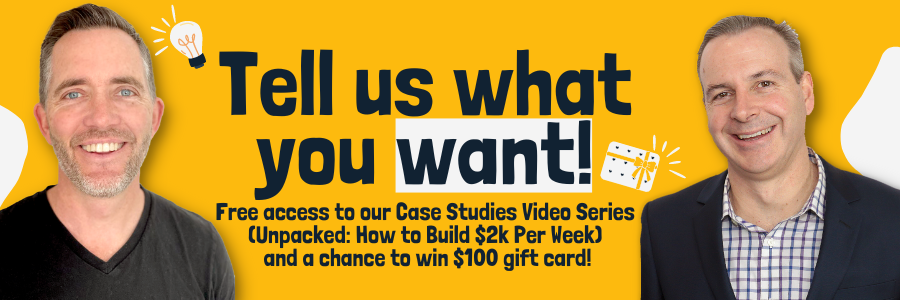“What you do with your home will have the biggest impact on your fees and charges and how your cash flow works in residential aged care.” – Jennifer Langton
Folks, there’s A LOT of considerations and work to be done to “get your ducks in order” before you retire. It can be overwhelming, from managing your pension to strategically positioning your home and investment properties.
And it’s not just for elderly folks or those who are about to retire. Gen Xs, we’re talking to you too!
To help guide you through Australia’s complex Aged Care system, we’ve got an exceptional, first-time property couch guest: Jennifer Langton!
Jennifer is the Head of Personal Advice at Aged Care Steps and is an Educator, Financial Adviser, and Speaker who is an FAAA accredited Aged Care Specialist for Senior Aged Care and Retirement Living.
Together, we unpack:
✅ The 3 Major Phases of Retirement & why most people only think about Phase #1!
✅ Why you want to avoid “Hospital Carpark Decisions” at ALL costs
✅ Why You Don’t Want A Scottish Castle In Retirement!
✅ How your home is assessed (Psst: It’s different between your aged care and aged pension!)
✅ The intricacies between interest rates and pensions and the new incoming changes
✅ Jen’s top tips and tricks for aged care and much more!
Tune in now to discover the answer to some of these age-old questions 😊
Free Stuff Mentioned
- 2024 TPC Survey Closing Soon! Let us know what we should start, stop and keep doing and as our thanks to you, we’ll give you a Case Study Series Unpacked for FREE (usually $297). Plus, the top #5 most insightful answers will win a $100 gift card. Share your thoughts now >>
- Resources Jennifer Mentions:
- Find out more about Jennifer or get in contact with her today
- Accessing home care under 65 years: NDIS
- Accessing home care over 65 years: My Aged Care
- Find out more about the:
- Resources from Ben’s ‘What’s Making Property News’:
Timestamps
- 0:00 – The 3 Stages of Retirement & Why Most Don’t Think Beyond Stage 1?
- 2:44 – 2024 Survey Closing Soon: Fill yours out & get our FREE Case Studies Unpacked Series!
- 5:02 – If you are a Gen X, you’re going to want to do this…
- 6:08 – Mindset Minute: Dream while you’re awake
- 9:53 – Welcome Jennifer Langton!
- 10:29 – We NEED to change these Aged Care myths
- 14:29 – Jen’s career from Flying to Financial Planning
- 16:50 – Her Traditional Money Backstory
- 19:04 – “Sit down and have that cup of tea”: The first big steps to financial literacy
- 21:30 – How Jen has always stayed in control of her finances
- 22:38 – The big transition away from a traditional upbringing
- 23:26 – The 3 Major Phases of Retirement
- 27:21 – The options available in Australia’s care system
- 32:03 – Who and what should you be considering when it comes to retirement?
- 33:54 – Application to approval codes: The Assessment Process
- 37:37 – The Scottish Castle: Why it matters WHERE you live
- 41:27 – “Your home is assessed differently for aged care and aged pension”
- 44:45 – Avoid ‘Hospital Carpark Conversations’ at all costs!
- 46:44 – THIS is where Financial Planners shine
- 48:12 – The messy middle of 1 investment property
- 50:27 – Option 1: Do Nothing?!
- 51:12 – Case Study: Beryl, aged 87
- 54:55 – The fine print: Refundable Accommodation Deposits (RAD)
- 58:06 – New changes coming out to interest rates and aged care?
- 1:01:55 – The wealthiest generation around the world
- 1:04:12 – Tips & traps of aged care
- 1:07:53 – The Granny Flat Catch
- 1:09:30 – Summary
- 1:10:23 – What options do you have for your home in retirement?
- 1:11:43 – Why we haven’t been talking about Superannuation
- 1:13:47 – Advice from one of the best in financial and aging care planning
And…
- 1:16:04 – Thank you for turning on the lightbulb, Jennifer!
- 1:21:36 – Lifehack: Apple has added a game-changing feature for podcasts
- 1:23:40 – WMPN: Construction has hit new lows & the most expensive property on the planet?!

 Subscribe On Itunes
Subscribe On Itunes Subscribe On Android
Subscribe On Android

